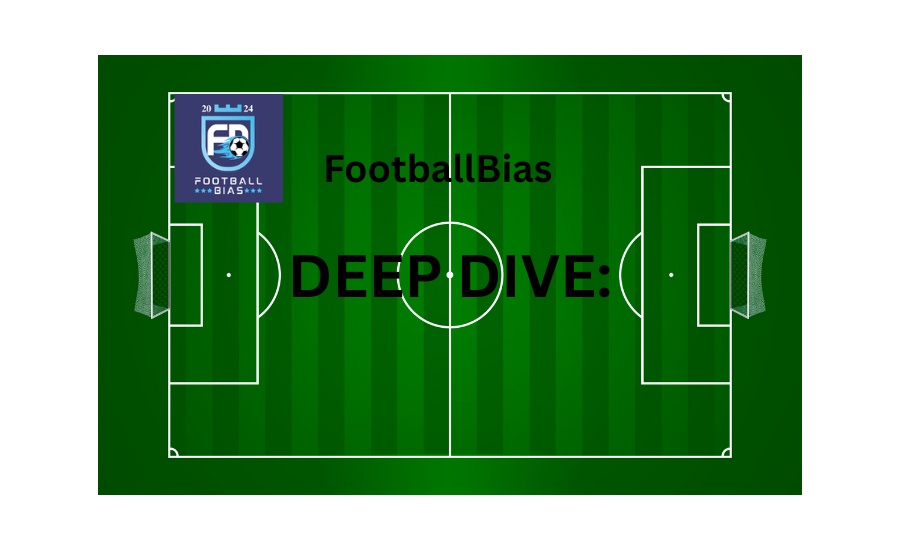Inside A Footballer’s Mind : How Do Footballers Stay Motivated?
What Drains Their Motivation?

In football, success can be a strange paradox. Take, for instance, a 24-year-old player who has just won the treble, league, domestic cup, and Champions League. By every measurable standard, they have it all: wealth, global fame, and a trophy cabinet most players can only dream of. Yet on the pitch, their intensity may not match that of a 19-year-old making his debut, desperate to secure a place in the squad. This is the “hunger gap,” a psychological phenomenon where the achievement of certain goals can blunt the very drive that once propelled a player to greatness. It is not laziness, nor arrogance; it is the natural consequence of reaching the summit of external success without cultivating a sustaining internal motivation.
Motivation in football exists on a spectrum. Early in their careers, players are dominated by extrinsic factors, contracts, trophies, recognition, and the approval of coaches and fans. A young player runs tirelessly because every touch, tackle, or goal is a step toward validation. Their rewards are tangible: a new contract, a first-team appearance, or the applause of the crowd. This extrinsic motivation is vital; it gives structure and urgency to their development. However, the same drivers that push rookies to excel eventually lose potency. Once a player has amassed wealth, accolades, and a reputation, the external stimuli that once demanded peak effort tend not to hold the same weight.
For veteran players, the shift from extrinsic to intrinsic motivation becomes essential. Intrinsic motivation, the internal spark of love for the game, mastery of a skill, or personal satisfaction in performing well, must take over. A 30-year-old midfielder, for example, cannot rely on trophies or financial rewards alone to maintain elite performance. Their focus must turn inward: refining positional awareness, mastering tactical subtleties, or mentoring younger teammates. These internal goals are subtler and less immediately rewarding, but they are the only forces capable of sustaining performance when extrinsic incentives have plateaued or are plateauing. Without this internal drive, even the most decorated players risk stagnation, underperformance, or burnout.
The evolution from external to internal motivation is rarely linear, and it is often overlooked in modern football culture, which emphasizes constant accolades, media attention, and short-term results. Consider the careers of Lionel Messi and Cristiano Ronaldo in their early peak years. Initially, their drive was fueled by the pursuit of recognition and trophies. Over time, sustaining their elite performance required a deeper, self-generated motivation, perfecting technical skills, pushing tactical boundaries, and finding new personal challenges beyond the obvious accolades. This transition is what separates the players who achieve fleeting brilliance from those who sustain greatness over a decade or more.
Even when intrinsic motivation begins to take hold, players face significant psychological obstacles that can erode their drive. One of the most insidious is success fatigue, sometimes called the “completed game” syndrome. When a footballer has won every conceivable trophy, league titles, domestic cups, Champions League medals, or even a World Cup, the very goals that once structured effort vanish.
Training sessions and matches begin to feel repetitive, and the sense of purpose that fueled early career intensity is replaced by a quiet, almost imperceptible void. The player’s efforts, once urgent and meaningful, may start to feel pointless. Even for the most accomplished stars, this can result in a perceptible dip in performance, a subtle disengagement that fans often misinterpret as laziness.
Closely related is financial saturation. Modern footballers often earn sums that provide security for multiple generations. While such wealth is enviable, it can remove one of the most tangible external motivators: money. When financial pressure is no longer a driver, the urgency to perform each week diminishes, and the player must rely almost entirely on internal motivation. For some, this transition occurs smoothly; for others, it exposes a vulnerability in mental resilience.
Systemic boredom is another subtle, yet powerful, killer of motivation. Players confined within rigid tactical systems, where creativity is tightly policed by managerial demands, can feel constrained. Even technically gifted athletes may begin to see training and matches as chores, rather than opportunities for expression and mastery. Over time, the joy of improvisation, the small, spontaneous moments that made the game thrilling, can fade.
Long-term injuries amplify these challenges. When a player is sidelined for months, their sense of identity, the self-conception tied to being a footballer, can fracture. Returning to play may be physically possible, but psychologically, the fear of reinjury or failure can diminish confidence and intrinsic drive. Similarly, the omnipresent pressure of public scrutiny, amplified by social media, can erode motivation. Constant commentary, both praise and criticism, reframes the game from a pursuit of personal excellence to a performance under public judgment, where every mistake is amplified.
Recognizing these threats, clubs have developed strategies to re-ignite the drive of seasoned players. One approach is the “reset,” which seeks to reposition a player within the team or shift their responsibilities. A veteran defender might be retrained as a ball-playing midfielder, or an attacker might be given a new tactical challenge. Leadership roles, including captaincy or mentoring younger players, redirect focus from personal achievement to group impact, creating new sources of intrinsic reward.
Modern sports psychologists also play a critical role in sustaining motivation. By emphasizing process goals, daily improvements, technical mastery, and tactical awareness, over purely outcome-oriented targets like trophies, psychologists help players maintain focus on controllable, intrinsically satisfying aspects of the game. Clubs must also carefully structure contracts. While long-term, lucrative deals provide security, they can inadvertently demotivate players if the sense of weekly achievement is lost. Thoughtful contract design balances financial stability with the need for ongoing challenge, preserving both extrinsic and intrinsic motivation.
Sustaining greatness in football is less about raw skill than it is about the mental toughness to remain motivated once initial goals are achieved. The players who continue to excel after winning trophies and earning wealth are those who internalize the game so deeply that their motivation becomes self-sustaining. They do not play for applause or external validation; they play for the inherent satisfaction of mastery, the quiet thrill of improvement, and the challenge of pushing personal limits. This is the hallmark of the truly elite, those who refuse to let the absence of external pressure diminish their intensity.
Modern day managers, from Pep Guardiola to Carlo Ancelotti, understand that technical ability alone cannot guarantee sustained performance. Their role extends beyond tactics; they are architects of motivation, engineers of the mental environment that keeps even the most accomplished players hungry. By continually challenging players, offering new responsibilities, and emphasizing process over outcome, these managers cultivate a culture where intrinsic motivation can flourish. In doing so, they bridge the hunger gap, ensuring that players retain the drive that first propelled them into the professional game.
Ultimately, the greatest footballers are those who navigate the delicate balance between extrinsic and intrinsic motivation. They evolve from young players driven by contracts and recognition into seasoned athletes fueled by self-improvement, mastery, and a love of the game itself. In football, as in life, reaching the summit is only the beginning; maintaining the hunger to climb higher requires introspection, adaptability, and an unrelenting commitment to personal excellence. The hunger gap is real, but for those who understand it and cultivate their inner drive, it is a challenge that can be transformed into a lifelong source of achievement and fulfillment.






